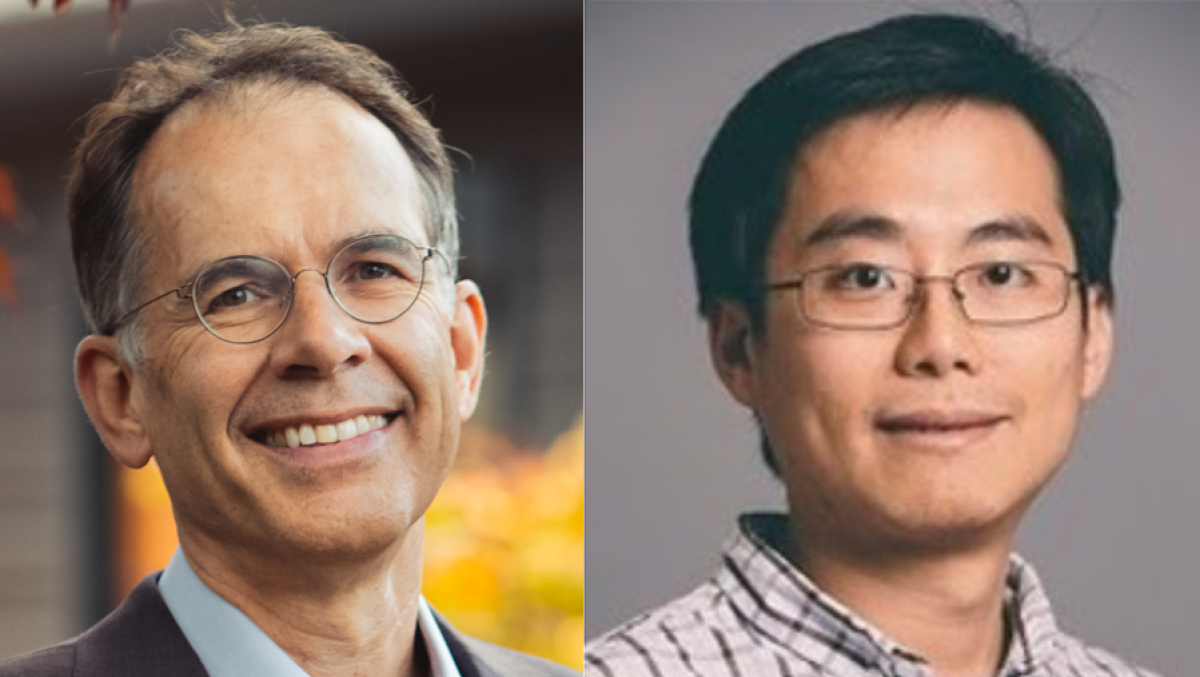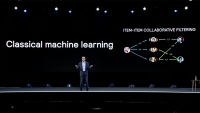The ACM Conference on Recommender Systems (RecSys) is the premier conference in the field of recommender systems, with recent editions attracting well over a thousand participants each, from both academic and industry backgrounds. This diversity is something RecSys prides itself in, as it leads to valuable cross-pollination and fosters progress in interdisciplinary research.
Naturally, applications of recommender systems are an important research area for Amazon, as we aim to delight customers on our retail website, Amazon Music, and Prime Video and with Alexa and more. We are proud that this year the conference will be held in Seattle, with two Amazon scientists serving as general co-chairs and even more Amazon scientists on the organizing and program committees.

RecSys also has a track record of strong workshop programs, where researchers from industry and academia collaborate to dive deep on emerging research topics and open problems in the field. We are happy to contribute to this trend this year with the two-day CONSEQUENCES+REVEAL workshop.
The REVEAL workshop series ran from 2018 to 2020, addressing problems that ranged from offline evaluation to bandits and reinforcement learning, generating lots of interest. REVEAL will be reinstated this year, focusing on large-scale reinforcement learning for recommendation.
We’re also extending its scope with CONSEQUENCES: Causality, Counterfactuals, and Sequential Decision-Making for Recommender Systems. Traditionally, machine learning approaches to recommendation tend to cast it as a prediction task: “What is the probability that this user would like this product?”
Recently, the community has begun to realize that this is a myopic way of looking at the problem, and that, rather than predictions, our systems should make decisions. This is an important distinction, as decisions have consequences, and the recommendations we provide can influence shoppers’ behavior, sellers’ exposure, future training data for our algorithms, and so on.
If we want to reason about the (possibly unintended) consequences of the decisions our machine learning models make, we need to borrow ideas from causal inference. Typical “what if”-type questions in learning and evaluation require a way to model counterfactuals. Accounting for causal factors can foster progress in effective, efficient and fair learning and evaluation from logged data.
CONSEQUENCES will host two invited speakers: a Nobel Prize–winning academic pioneer and an industrial research giant with over a decade of experience in both fundamental theory and applications of the topic at hand.
Guido Imbens

Guido Imbens is the applied econometrics professor and professor of economics at the Stanford Graduate School of Business and a research consultant at Amazon. After graduating from Brown University, Guido taught at Harvard University, UCLA, and UC Berkeley. He joined Stanford in 2012. Imbens specializes in econometrics and, in particular, methods for drawing causal inferences. He is a fellow of the Econometric Society and the American Academy of Arts and Sciences. In 2021, he was co-awarded the Sveriges Riksbank Prize in Economic Sciences in Memory of Alfred Nobel for "methodological contributions to the analysis of causal relationships".
Lihong Li

Lihong Li is a senior principal scientist at Amazon. He received a PhD in computer science from Rutgers University and has held research positions at Yahoo!, Microsoft, and Google. His main research interests are reinforcement learning, including contextual bandits, and related problems in AI. His work has found applications in recommendation, advertising, web search, and conversation systems, and he has won best-paper awards at ICML, AISTATS, and WSDM. He regularly serves as area chair or senior program committee member at major AI/ML conferences such as AAAI, AISTATS, ICLR, ICML, IJCAI, and NeurIPS.
The organizers of CONSEQUENCES+REVEAL are working together to implement a novel workshop format filled with exciting content, where the program will be divided over two days, based on topic. We will include a poster session for all accepted contributions, oral presentations for selected contributions, and an in-workshop tutorial at the start to introduce advanced concepts and techniques.
See the official workshop website for more information on how to submit your contributions. We look forward to seeing you there!
Important dates
Submission deadline |
August 5, 2022 |
Author notification |
August 27, 2022 |
Camera-ready-version deadline |
September 10, 2022 |
CONSEQUENCES ’22 |
September 18–23, 2022 |
REVEAL ’22 |
September 18-23, 2022 |
Organizers
CONSEQUENCES
- Olivier Jeunen, Amazon
- Thorsten Joachims, Departments of Information Science and Computer Science, Cornell University, and Amazon
- Yuta Saito, Department of Computer Science, Cornell University
- Harrie Oosterhuis, Radboud University and Twitter
- Flavian Vasile, Criteo
REVEAL
- Paige Bailey, Anyscale
- Maria Dimakopoulou, Spotify
- Ying Li, Netflix
- Richard Liaw, Anyscale
- Yves Raimond, Netflix



















